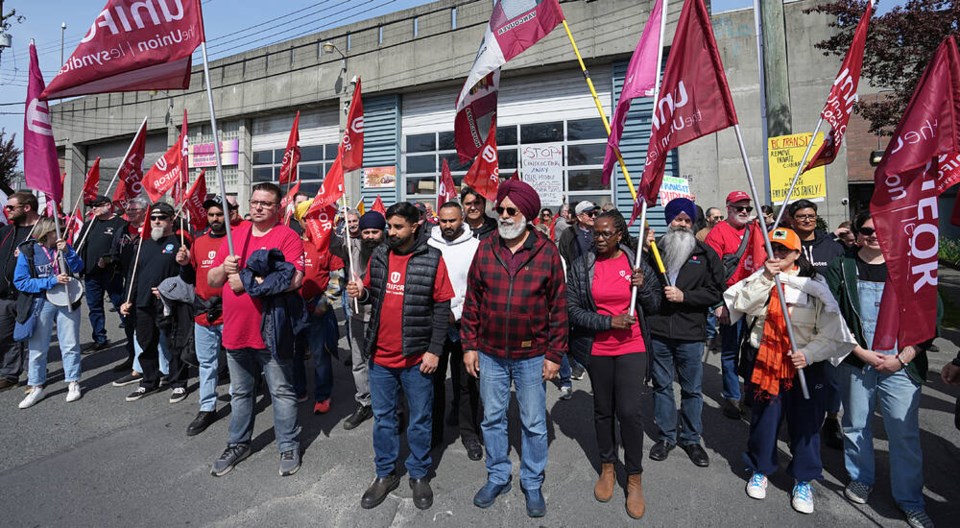If ratified, the agreement would end a nearly five-month-long labour disruption, the longest transit strike in the province’s history.

Unionized transit workers in the Cowichan Valley will vote Sunday on a proposed agreement to end a nearly five-month-long strike.
But Unifor Local 333 president Stephen Bains said he’s not hopeful the deal will be ratified, citing concerns that initial issues with adequate wages, breaks and bathroom accessibility aren’t being resolved.
Bains said one of his biggest issues is the pay discrepancy between Cowichan workers, who work for Transdev, which operates the valley’s system under contract to B.C. Transit, and those in Victoria who work directly for the public transit authority.
The current rate for an operator in Duncan is $31.24 an hour, while in Victoria, it’s $37.96.
Unifor national representative Gavin Davies said a mediator presented the recommendations to both groups on Monday.
“[The settlement] didn’t address all of our concerns,” Davies said. “There were steps made, but they did not meet what members were looking for.”
Davies said that if the deal is ratified, the first union members to return to work would be mechanics, who will take between two and three weeks to ensure buses are ready to enter service again.
He said he empathizes with community members who have been left stranded without transit, noting that operators and mechanics know how much their loss is felt.
“It’s tough on them, and they do feel bad for the community,” said Davies, adding that he feels employers take advantage of the fact that transit workers know their customers don’t have reliable taxis or ride-sharing services in rural areas.
Debbie Williams, executive director of Duncan’s Hiiye’yu Lelum House of Friendship, said the strike — which began Feb. 8 — has disrupted the daily lives of many people in her community.
Williams said Cowichan Valley residents without other means of transportation have been working together to carpool, and offering money for gas to those willing to bring them where they need to go.
“People are trying to problem-solve just to get basic needs,” she said, adding that many have struggled to find transportation to medical appointments.
She said she hopes to see a resolution to the strike so that people have safe, accessible transit once again.
On June 23, the job action reached 137 days, making it the longest transit strike in the province’s history, surpassing the 2022 Whistler Sea-to-Sky labour dispute.
In a statement, B.C. Transit said it understands the frustration felt by customers, adding that it “strongly believes in the collective bargaining process and hopes the two sides will reach an agreement soon.”
Transdev, which is based in Quebec, confirmed Friday in a statement that it met with Unifor on Monday at the request of the mediator, adding that it “remains committed to reaching a sustainable resolution and resuming reliable service.”
[email protected]